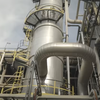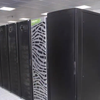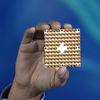Eni S.p.A., an Italian oil and gas multinational, has deployed an 18.6-petaflop supercomputer, making it the most powerful commercially-owned system in world.
The Ministry of Earth Sciences (MoES) in India has deployed the countrys two fastest supercomputers, which will be used to conduct earth science research and improve weather and climate forecasts.
Microsoft and Alibaba have independently developed AI models that scored better than humans in a Stanford University reading comprehension test.
The US Department of Energy (DOE) is investing 1.87 million in seven projects intended to advance manufacturing using high performance computing.
The European Commission (EC) has announced a financial framework for investing 1 billion in European supercomputers over the next two years. Under this framework, known as the EuroHPC Joint Undertaking, the European Union (EU) would contribute around 486 million, while the remainder would be supplied by EU member states and associated countries.
Intel announced it has built a 49-qubit processor, suggesting it is on par with the quantum computing efforts at IBM and Google.
Later this month, the National Oceanic and Atmospheric Administration (NOAA) will install two Dell supercomputers to its datacenters in Reston, Virginia, and Orlando, Florida.
Episode 207: Addison Snell and Michael Feldman discuss Microsoft's new storage acquisition, Foxconn's six-petaflop supercomputer, and LRZ's upgrade.
Two recently uncovered security problems that affect nearly every CPU on the planet have forced companies to issue fixes that could seriously impact performance. While Intel has taken the brunt of bad press, chips supplied by AMD, IBM, and ARM vendors are also affected.
Chris Downing, senior consultant at Red Oak Consulting, takes a look at what's ahead for high performance computing in the coming year. In particular, he focuses on what's in store for some of the major HPC suppliers AMD, Nvidia, Intel, and niche hardware providers as well as the prospects for cloud computing.









